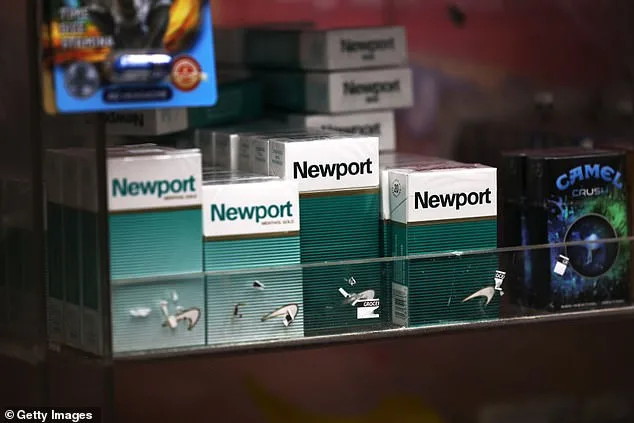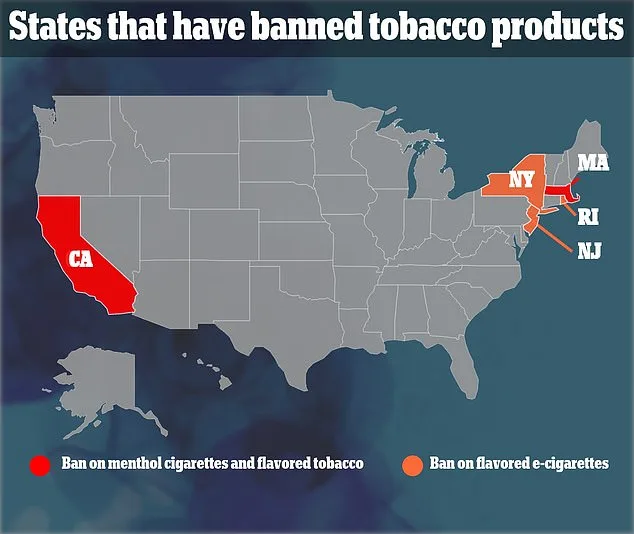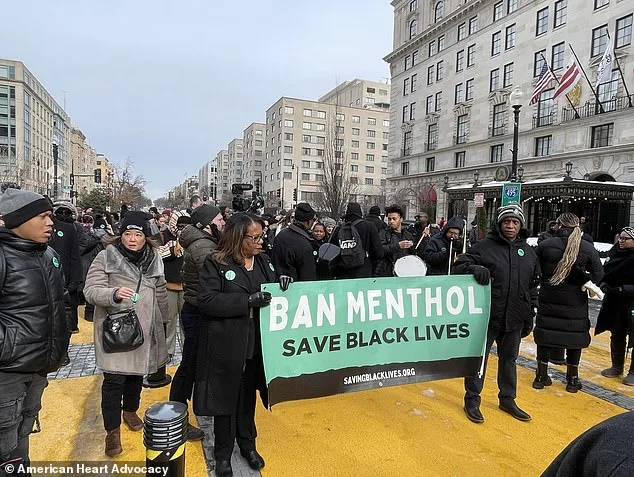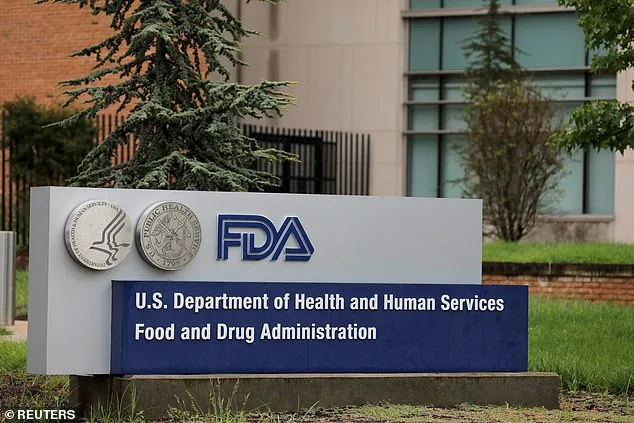- The White House has wanted to ban menthol flavoring in cigarettes for years
- But the process has been long and the FDA has missed an August 20203 deadline to ban it
- As another deadline lapsed earlier this week, anti-tobacco groups sued the U.S. government for delaying the proposed ban
The White House may soon finalize a long-awaited ban on menthol cigarettes after pressure from special interest groups, with some saying the ban could negatively impact minority communities.
Menthol cigarettes account for nearly one-third of the industry’s market share in the U.S., meaning they are broadly popular with smokers.
They have also long been particularly popular with black smokers, with 81 percent of them opting for the menthol varieties, according to the Centers for Disease Control and Prevention (CDC).
The minty flavoring that is added to these products typically appeals to young, first-time smokers, making them dangerous in the eyes of the White House, medical associations and civil rights groups.
But advocates against the ban argue it could hurt minorities and small businesses.

‘The proposed ban, while well-intentioned, could have had far-reaching economic consequences for convenience stores by cutting 30 percent of sales and the livelihoods of over 600,000 workers,’ President and CEO of the U.S. Hispanic Business Council Javier Palomarez told Fox News.
The National Association of Convenience Stores told the outlet in a statement: ‘The proposed ban would have the exact opposite results that proponents have championed.’
‘We hope that FDA is reconsidering its policy in light of the evidence that these types of bans simply don’t work.’
After a 2022 FDA proposal that menthol cigarettes would be banned, special interest groups advocating for and against the ban have been battling over the future of the proposed standards.
But health officials missed an August 2023 deadline to establish the proposed menthol ban, and they have missed subsequent deadlines too, including one earlier this week causing confusion over the future of menthol in the U.S.
Still, many advocating for the ban claim that outlawing the flavored products will cut usage and therefore save lives.
And banning menthol is not uncommon, the additive is currently banned in Canada since 2017 and has been banned in the European Union since 2020.
It is also banned in California and Massachusetts, along with a multitude of locally counties nationwide.


‘Menthol makes cigarettes more appealing and easier to smoke,’ according to the CDC.
‘In addition, menthol enhances the addictive effects of nicotine in the brain. The amount of nicotine, the addictive drug in tobacco products, in menthol cigarettes has increased in recent years.’
The White House previously said a decision on the new tobacco standard would be finished by March, but the administration missed that deadline earlier this week.
‘It is deeply disappointing that the Biden Administration appears likely to miss another deadline to issue a final FDA rule eliminating menthol cigarettes,’ President of the Campaign for Tobacco-Free Kids, Yolonda Richardson, said before the lapsed deadline.
‘Research shows that eliminating menthol cigarettes will reduce the number of kids who start smoking, increase the number of smokers who quit, and save up to 654,000 lives within 40 years, including 255,000 Black lives,’ she said in a statement.
Advocates for the ban have claimed that Biden dragging his feet on the matter has costed lives.
As a result, several anti-tobacco groups sued the U.S. government on Tuesday.
‘Because of defendants’ inaction, tobacco companies have continued to use menthol cigarettes to target youth, women, and the black community — all to the detriment of public health,’ the groups wrote in their complaint.
The FDA has said that eliminating menthol could prevent 320,000 to 650,000 smoking-related deaths in the U.S. over 40 years.
The FDA and the White House did not return requests for comment.



